The Democratic Republic of Congo (DRC) and Rwanda have signed a five-year joint exploration agreement for oil under Lake Kivu, an exploding lake.
If it explodes, the CO2 at the bottom of lake Kivu could suffocate thousands of people and animals leaving around as it already happened before in Cameroon.
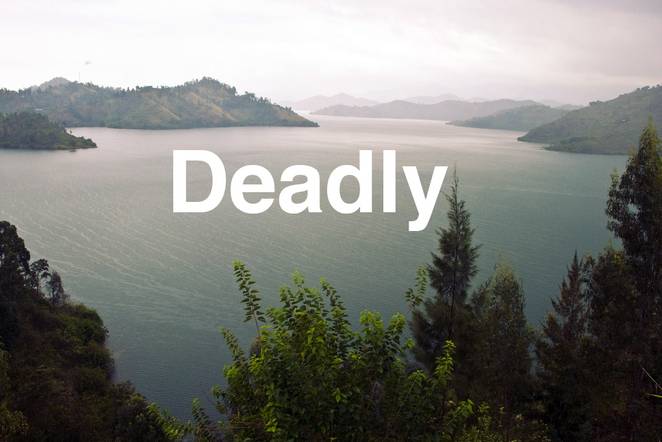
Lake Kivu is a 90 kilometers (56 miles) long and 50 km (31 miles) wide exploding lake situated on the border between the Democratic Republic of the Congo and Rwanda in the Albertine Rift valley.
Risk for a catastrophic explosion
It is now at risk for a catastrophic explosion as the Democratic Republic of Congo (DRC) and Rwanda signed an agreement in which they agreed to work together in exploring for oil in Lake Kivu.
Indeed, deposits of carbon dioxide lie on the bottom of Lake Kivu. The weight of the water keeps the CO2 safely at the bottom. But if the water should be disturbed (oil exploration), the gas could flare up from the sediments to the surface, like a warm fizzy drink shaken up and bubbling over.
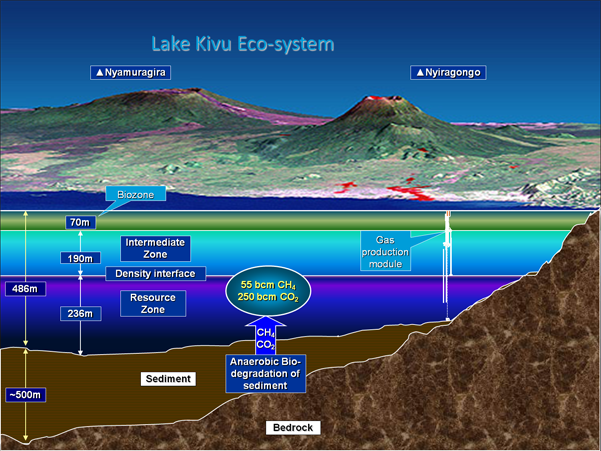
Although CO2 is not poisonous, it could suffocate populations and cattle living around the lake. It happened before at Lake Nyos in Cameroon where hundreds of people and thousands of cattle died. If Lake Kivu were to explode, over two million people who live around would be in danger.
History of exploding lakes
A tragic phenomenon occurred in Cameroon in the mid 1980s, where lakes seemed to be killing people.
The first event happened in 1984, when 37 people near Lake Monoun died suddenly. The second event, however, was much more deadly.
In August 1986, Lake Nyos released a cloud of carbon dioxide (CO2) which hugged the ground and flowed down surrounding valleys to suffocate thousands of local villagers and animals. Overall, more than 1,700 people were killed as far as 26 km away from the lake.
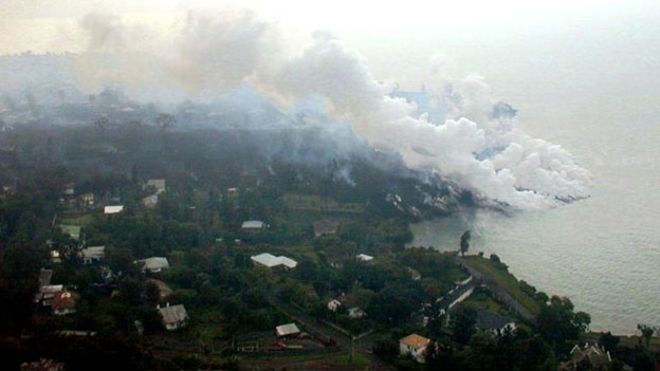
A third lake, Lake Kivu, on the Congo-Rwanda border in Central Africa, is also known to act as a reservoir of carbon dioxide and methane. These three lakes contain very high concentrations of CO2 in their depths and can be lethal to thousands of people that live around them. If Lake Kivu were to explode, over two million people who live around it would be in danger.
And what about the Louisiana sinkhole?
So do you think this oil survey is a good thing in Lake Kivu? I am kind of hesitant.

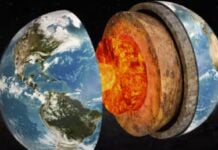

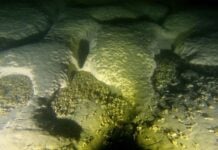







[…] Schematic of stratified Lake Kivu. Drawing courtesy Hydragas.net via Strange Sounds. https://strangesounds.org/2017/04/risk-catastrophic-explosion-lake-kivu-drc-rwanda-oil-exploration-l… […]